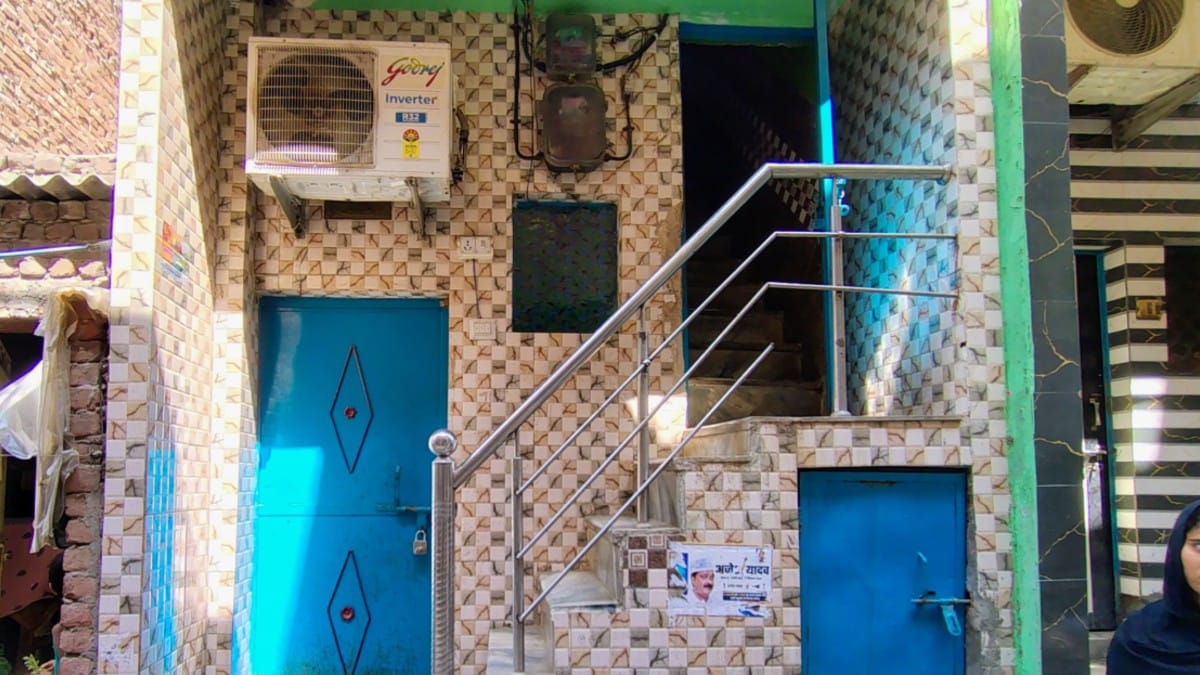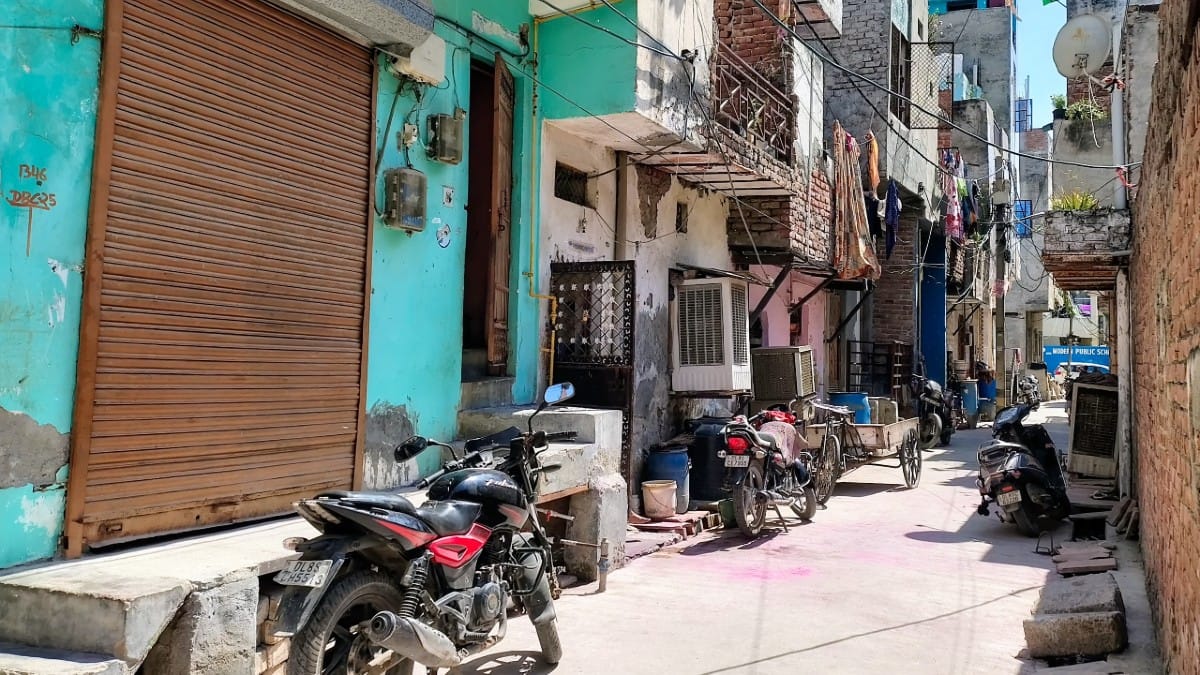New Delhi: She is in her mid-30s, well built with sharp features, almost fluent in English, and wouldn’t seem out of place at any club in West Delhi catering to upper middle class patrons. She is the West Delhi party circuit’s go-to supplier of cocaine and MDMA.
Delhi police have been on the look out for this mystery woman the past few months. But multiple attempts to track her down have failed—she manages to take off just before a raid, vanishing into thin air.
From selling high-quality hashish and MDMA to heroin and cocaine, women like her are now an indistinguishable part of the drug trade in Delhi. Their network is spread across Himachal Pradesh, Uttar Pradesh, Punjab and Haryana. What makes it lucrative is that women carriers can move around more easily and are more unlikely to have a rap sheet.
Take the case of the mystery woman moving product in West Delhi. The police, it is learnt, have a name but that is in all probability an alias. “Sometimes she carries contraband. But she is also very careful. Now, she mostly meets clients and after finalising the deal, makes a call to men who work under her to deliver the drugs to the customer. She also delivers on call but only through a reference,” said a police source familiar with this case.
Investigators told ThePrint that bootlegging has been the entry point for most women part of Delhi’s drug trade. Networks built by the men of the family helped.
“So they already have a network but since men of the house have been arrested in the past, these women are extremely careful and go undetected. They are very swift in how they operate,” remarked a senior police officer in Delhi who didn’t wish to be named.
In 2024, data accessed by ThePrint shows, at least 211 women were arrested across Delhi in 188 separate cases lodged under relevant sections of the Narcotic Drugs and Psychotropic Substances (NDPS) Act, 1985, involving ‘commercial quantity’ of drugs.
In 98 of these cases, ‘ganja’ was seized, followed by 82 cases where police seized heroin. Data also shows that 22 of these cases were registered in the West Delhi district, 20 in Shahdara, 19 in Outer North, 18 in North West and 14 in Dwarka district.
Over 54 percent of the women arrested in these 188 cases were between the ages of 40 and 85, including nearly 6 percent between the ages of 60 and 85.
Women traditionally enter the drug trade in peripheral or “low-level” roles assigned by male bosses. “They would be asked to make ‘puriyas’ (smaller paper packets used to distribute heroin, cocaine etc.) sitting in their homes. Their homes have iron grills. During a raid, as police are breaking open the lock, they get enough time to dispose of the drugs,” a second police source said, adding that the supply chain earlier was entirely male-dominated.
But there has been a shift in the power dynamics and gender roles in the underground economy. Women are not just making ‘puriyas’ anymore, some are running full-fledged operations—from supplying and distributing to hiring men for streetside retail.
A third police source said women-led drug operations also employ juveniles to carry out smaller deliveries.
One such syndicate is run by a 55-year-old woman known only as ‘Aunty’ who told ThePrint over the phone: “It’s just business. Earlier I sold only alcohol but then someone introduced me to the stuff. It brought in more money and one doesn’t need to work everyday. We just have to be careful not to get caught during delivery with the stuff in our possession.”
Careful not to divulge too much, ‘Aunty’ said she never entertains customers without a reference, talks to clients only on WhatsApp and never holds or delivers a large consignment. Her syndicate delivers contraband ranging from marijuana to heroin to clients across South Delhi and bordering areas of Haryana.
She sometimes moves the product herself on scooty or by car. But deliveries are mostly done through quick commerce agents who may not always be aware about the ‘puriyas’ concealed under layers of savory items or sweets.
On how she entered the drug trade, ‘Aunty’ said it was after her husband left her some years ago. “It’s good that he left. The daily beatings and harassment ended. I’m not that educated and to sustain myself and maintain a standard of living, I started by selling liquor. With drugs, the business is easier, product lighter in weight and more money.”
Her bootlegging operation is still active and dry days, she said, are very good for business.
While some like ‘Aunty’ deal with clients directly, others use couriers. “The network also includes sex workers working in the National Capital Region (NCR). Pickups are done by known cab drivers which ensures that they are safe and keeps them out of the police net,” said the senior police officer quoted earlier.
And when it comes to the drug trade, age is no bar. Take for instance, Raj Rani, an 85-year-old resident of JJ colony in Delhi’s Inderpuri. She has been in the drug trade since the 1990s. Designated a ‘bad character’ at West Delhi’s Inderpuri police station, she has been arrested at least thrice under the NDPS Act. In 2024, she was arrested in two separate cases for dealing heroin. And in 2019, heroin was recovered from her at the time of arrest.
Taslima: The matriarch
In Bhalswa Dairy’s JJ colony, no one wants to recognise Taslima, at first. Also known as Putty, even her immediate neighbours claim they don’t know the 43-year-old arrested for the first time in June 2024.
One neighbour finally spilled the beans. Hiding behind a thick facade of curtains, the neighbour told ThePrint on condition of anonymity, “She (Taslima) is like a don here. The whole family is. Everyone knows what she was doing but people here are scared of her.
“She became very rich by dealing drugs. We don’t know who tipped off the police but one thing is for sure, it can’t be anyone from the JJ cluster because everyone worries what she would do to them if she found out.”
Within minutes, Taslima’s family members were outside the neighbour’s house. Ruby, her daughter-in-law, fired the first threat: “Why are you all talking about Taslima? Don’t forget, we all live here.” She then jumped to Taslima’s defence, claiming she had nothing to do with drugs. “We do odd jobs. The police are lying.”

Police sources, on the other hand, said Taslima was found to be in possession of 400 grams of high-quality heroin and that a preliminary probe suggested that she had been dealing in drugs for more than a decade.
Like many others, Taslima too found her feet by bootlegging. Her husband Munawar and son Nawab were jailed multiple times and it was during one such stint behind bars that Taslima decided to step up. She is believed to have tapped into her son’s networks to allegedly expand the operations of the syndicate.
By the time of her arrest, Taslima had allegedly amassed properties collectively worth nearly Rs 2 crore. Six properties were frozen under Section 68F(1) of the NDPS Act after Taslima failed to furnish evidence to show that the properties were not purchased using proceeds of crime. A Hyundai Creta, allegedly used to make deliveries, was also seized.
Her son Nawab, designated as a ‘bad character’ at the local police station, is absconding in the same case in which police arrested four others, namely Sonu Singh, Vijender, Rajeshwari and Nadeem.
A ‘bad character’ is one with a past criminal record whose name is included in a dossier maintained by police stations. In colloquial terms, ‘bad characters’ are habitual offenders.
Santosh: The courier
Another case is that of 58-year-old Santosh who took to the business after her husband, an autorickshaw driver, could no longer work due to a health condition.
Santosh was arrested by Delhi Police Crime Branch near GT Karnal bypass in February. Concealed in her bag of clothes was a polythene bag covered in brown tape. Inside it was 2 kilograms of high-quality hashish or ‘Malana Cream’ worth an estimated Rs 10 lakh.
Police sources said Santosh had been moving the product for two years prior to her arrest.
“One could never guess. She looks extremely frail and suffers from multiple ailments. We received a tip-off months ago but had to wait to gather more evidence against her and make sure we found the contraband on her at the time of arrest,” said a senior police officer familiar with this case.
During the COVID-19 pandemic, Santosh—then living in Bapa Nagar in Karol Bagh—started working as a courier for jewellery shops in the area. She would pick up and drop off goods as well as cash. Around this time, she travelled to Manikaran in Himachal Pradesh, where a man of Nepalese origin approached her. They started talking business and he offered to pay her Rs 40,000 for each 1 kg consignment she would be able to deliver for him.
“For Santosh, this meant she would need to travel less. Two trips a month and she could earn Rs 80,000 or more. This syndicate was using Delhi as a mid-transit point for deliveries. Santosh would also take the drugs to Surat, Maharashtra and Punjab,” said the senior police officer familiar with this case.
So far, no one apart from Santosh has been arrested in the case. Investigators say Raja, the man of Nepalese origin who would give her the consignment learnt of her arrest and switched off his cell phone. Santosh’s interrogation too didn’t amount to much.
Also Read: How Delhi Police’s war against drugs saved India from becoming another Colombia
Seema, Meenu & Kajol: The ‘nanad-bhabhi’ syndicate
In 2022, Delhi Police got a tip-off about three women running a drug syndicate.
Nearly everyone Seema (45), Meenu (38), and Kajol (25) knew was in the heroin business, said police sources, adding that the three women joined the cartel at different times over the last 10 years. Seema is Meenu’s sister-in-law and Kajol their neighbour.
All three have been arrested in a case registered under relevant sections of the NDPS Act in July 2022. Meenu and Kajol were found to be in possession of 550 grams of heroin at the time of their arrest, said police sources.

“Seema took over the business after her husband died. She recruited Meenu and Kajol. They discussed expanding the syndicate and bringing in more women. These women are dealers who supply to other dealers as well as clients,” said a senior police officer familiar with this case.
Besides the three, another woman by the name of Shanu Khatoon as well as Kajol’s brother Deepak alias Pappu were also arrested in connection with the case.
Deepak is a ‘bad character’ with multiple cases against him, including for attempt to murder and under the NDPS Act. Seema’s brother Vijay, another ‘bad character’, is absconding in the same case involving the three women. Seema too has one prior case lodged against her under charges of physical assault.
Challenges for law enforcement
Investigators told ThePrint that while the modus operandi of drug operations led by both men and women is largely similar, identifying women cartel heads and suppliers is a challenging task, primarily due to gender stereotypes.
As one senior Delhi Police officer explained, “Women arrested for drug dealing, in most cases, don’t have a previous crime record which keeps them off the radar, though some may have been arrested in the past for bootlegging. Women recruit other women known to them, like neighbours or just some acquaintances.
“While traveling too, they are less likely to attract attention compared to their male counterparts, due to the predominant mindset that women don’t deal in drugs. Most of these women also don’t consume the drugs they sell, unlike some male dealers, which leaves little room for error.”
Another senior police officer told ThePrint on condition of anonymity that the drug trade was once largely dominated by men but not anymore. “A lot of it is because of the assumption that a woman in the age group of say, 60-80, could be involved but in reality, there are many dadis (grandmothers) sitting in jhuggis dealing drugs worth crores.”
The officer also revealed that unlike most men arrested on charges of drug trafficking, women don’t readily cooperate with the police after arrest. “Some of them are already ill and look extremely frail, so the investigating team has to be very cautious. Women also tend to lay low in a manner that doesn’t raise suspicion. This is the same reason men who control the business also now prefer women to make the deliveries.”
Another factor, said investigators, is that women working in the drug trade mostly operate at night.
As a third senior police officer who didn’t wish to be named put it: “We can’t arrest them after sunset and until sunrise unless we have permission from the magistrate and it’s a watertight case. It has to be proven that the arrest was made under exceptional circumstances. The raid has to be full-proof.”
(Edited by Amrtansh Arora)
Also Read: Indians are buying and selling heroin, cocaine & ganja online, and UN is worried







What has happened to the women of country , smuggling , murders and what not , there is a serious need for introspection